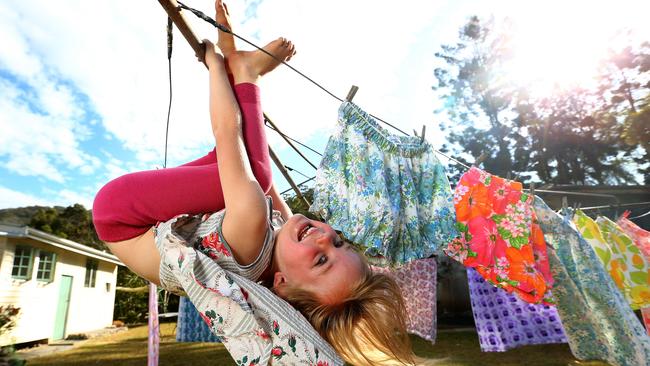Hills to close last SA manufacturing facility at O’Sullivan Beach; exits Foxtel dish, antennas businesses
Hills will sever the last link to its iconic manufacturing history in SA, leading to the loss of 20 positions.
Hills will sever the last link to its iconic manufacturing history in SA with the closure of a facility by the end of the year.
The company has decided to close its O’Sullivan Beach facility, which made satellite dishes for Foxtel and Black Arrow range of antennas.
The facility employed 20 workers, some of which will be redeployed within the broader Hills group, which has another 40 people in SA.
The business behind the iconic Hills Hoist clothesline started making antennas around 1955, including for SA’s first ever television.
The business said it was exiting both markets.
Another SA group is understood to be in discussions to buy the antennas business and make them at a different location, and may potentially offer opportunities to some existing staff at O’Sullivan Beach.

The decision comes as a result of Hills’ strategic focus on growing its health and distribution businesses.
It will exit its “underperforming” communications assets.
“These decisions reflect the declining profitability of the communications business and the continued fall in Foxtel volumes,” the company told investors.
The cost of the closure will be revealed when Hills reports on its full year performance within days where it will also detail its $8.8 million statutory loss.
Underlying profit after tax is expected to have improved to about $500,000.
The company has recorded one-off redundancy costs of $1.4 million in FY2019.
In 2008, when the business embarked on a transformation to target the “green and smart” sectors, it employed 3000 staff and 600 contractors and made a pre-tax profit of $87 million.

“The strategic review has delivered the road map to focus on the exciting potential of Hills Health business, with a streamlined Distribution business expected to return to profitability as early as the first half of FY2020,” Hills chief executive and managing director David Lenz said.
Mr Lenz had previously flagged challenges at the company’s O’Sullivan Beach facility at last year’s annual meeting in October.
Hills expects to resume dividends in the current financial year, subject to the capital requirements of the company.
It also announced a change to board fees.

From July 1, non-executive directors’ fees were reduced from $80,000 to $60,000 and the chair’s fee from $160,000 to $100,000. The Audit Committee chair’s fee was reduced from $16,000 to $10,000.
Chair Jennifer Hill-Ling was confident the results of the strategic and operational reviews would “restore sustainable profitability and ensure the market correctly values the company” for the benefit of all shareholders.
“While we are disappointed by the writedowns to effect the required turnaround in performance and refocusing of the business, the results are starting to show, particularly in Health where profitable growth is very pleasing.”

